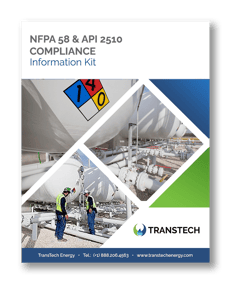A common issue that arises from using gaseous alternative fuels such as Compressed Natural Gas (CNG) or AutoGas (LPG) in its Vapor form is intake valve recession. In this article we will look at what valve recession is, why this occurs and what measures can be taken to prevent valve recession. TransTech Energy Alternative Fuel Systems policy is to educate consumers so that they can fully understand the newer advancements in Alternative Fuels so they can be on the cutting edge and benefit from the best technology without the possibility of harming their vehicle.
Not long ago lead was removed from gasoline in the united states, manufacturers quickly realized that with the loss of lead the exhaust valves would become too hot and “burn” the valves. The OEM’s acted quickly and began installing hardened exhaust valves and valve seats to fix this issue.
Modern day technologies have been developed that allow consumers and fleets the ability to run CNG and Vaporized AutoGas in factory gasoline engines. Just like the removal of lead from gasoline, these alternative fuels are a huge leap in cleaning our environment and reducing greenhouse gas emissions. Unfortunately this leap also brings along with it the same issue of burning valves, but on the intake side of the head.
When gasoline is injected into an engine it is atomized with the intake air charge, but it is still in a liquid form. The gasoline as it enters the combustion chamber and passes the intake valve it helps to cool the valve since the liquid hits it and evaporates on contact. A side effect of this process is carbon deposits from the dirty gasoline on the valves as it evaporates on the valve. You have probably seen images of this at your local gas station pump where newer gasoline is being marketed with cleaning agents to help keep this carbon build-up from occurring. CNG and Vapor AutoGas conversions are injecting a vapor into the combustion chamber. This is great since these cleaner alternative fuels eliminate the carbon build-up on the valves, but because of this there is no evaporating of the fuel on the intake valve to help cool it. To add fuel to the fire these gaseous alternative fuels burn hotter than gasoline and cause the intake valves to become even hotter.
The intake valves in an engine become very hot during operation. The only time they have to dissipate that heat is when the valve closes and is seated in the head. During this time the heat from the valve is transferred into the head and from there transferred into the cooling system of the engine. Since these gaseous alternative fuels don’t offer an evaporative cooling and burn hotter than gasoline; the intake valve overheats. Once the intake valve overheats, when it is seated in the head, that heat is so great that it begins to melt the aluminum of the head at the valve seat and to “recess” into the head. Over time this causes leaks at the seat which in turn causes uneven cooling of the valve and ultimately causes the valve to melt at the leak. This process is commonly referred to by mechanics as burning a valve.
Like the removal of lead from gasoline, this issue is easily fixed by installing hardened intake valves and hardened intake valve seats. This is the exact fix that was done by the OEM’s on the exhaust valves with the implementation of unleaded gasoline. Some OEM’s are actually already preparing for these new alternative fuels to take over the market by offering CNG/AutoGas engine prepped motors from the factory. For a very small option price these prepped motors come with hardened intake valves and hardened valve seats straight from the factory to eliminate valve recession.
Another fix on the AutoGas alternative fuel side is to convert a gasoline motor with Liquid AutoGas injection instead of vapor. When AutoGas is injected as a liquid it performs like gasoline by evaporating on and around the intake valve. This cools the intake valves so much that it even counter acts the additional heat produced by the hotter burning alternative fuel and eliminates valve recession on the intake valves.
As you can see valve recession is easily fixed when converting a gasoline powered motor to run on these clean alternative fuels. Be sure to ask your conversion specialist at TransTech Energy Alternative Fuel Systems if you have any questions regarding valve recession or any other Alternative Fuel questions.






